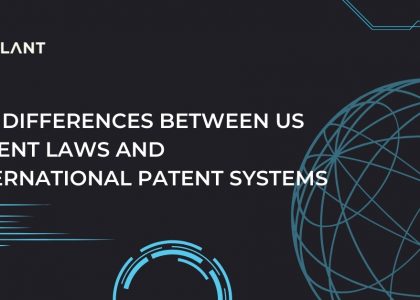An unquestionable boon to society has been the tremendous increase in technological advancements in recent years. Many of these advancements have come about through the application of intellectual property (IP). Broadly speaking, IP comprises all forms of intellectual property rights – such as trade secrets, copyrights, trademarks and patents – that are created and enforced through laws or treaties. These rights permit individuals or companies to exploit their innovations so they can generate income from them while also protecting their interests. Food products are no exception; they are often protected by patents. This is because food constitutes an important part of people’s everyday lives and needs must be met through innovation if they are to remain competitive.
A patent is a legal protection granted by the government to an inventor or their legal representative for an invention. The patent defines the scope of the patented invention, as well as any limitations on how it may be used. Patents can be obtained for inventions in any field, but are most commonly assigned to products that fall within one of four categories: drugs, electrical and electronic equipment, machines and methods of manufacture, and plant varieties. In some cases, patents may also be granted for processes or compositions of matter.
Are patents essential for the food industry?
Patents play a vital role in the food industry. They protect inventions that are developed by the food and beverage industry, which helps to ensure that all products are safe and of high quality. Without a patent, it would be difficult for companies to protect their products from anyone who might infringe upon them. This is particularly important in the food industry, where there are many different types of ingredients and processing technologies that need to be protected.
The relevance of patents in the food industry has been debated for a long time. Some experts argue that patents do not play an essential role in the development of food products, while others believe that they are essential for ensuring the safety and quality of these products. Ultimately, it is up to each company to decide whether or not patents are important to them.
Patents have been granted to inventions that are capable of, or that may be used to, produce a “new and useful process, machine, manufacture, or composition of matter.” In the past, many people have said that patents don’t have much relevance in the food industry because patents are only granted for new products. However, this is not always the case. For example, a patent on an agricultural product can also be granted for a method of producing that same product.
There has been a recent surge in the number of applications for food patents. This has raised some eyebrows, as patents have traditionally been used for technologies such as pharmaceuticals and medical devices.
What is driving this trend, and what does it mean for the food industry?
The Food and Drug Administration (FDA) regulates foods and supplements through the approval of new products. Innovation is essential for maintaining public trust in the safety and quality of these products, so companies apply for patents to protect their innovations. Patents can provide a wealth of information about food ingredients, formulations, processes and methods. This information can be used to development new products or to improve established products.
Patented innovations in the food industry that are know for their notable impact:
- Sterilisation/ Pasteurisation by Louis Pasteur- Louis Pasteur invented the procedure that is today known as pasteurization, which involves heating food to a specified temperature for a set period of time and promptly cooling it to kill any living microorganisms that could potentially cause disease. The main things that are pasteurized today are canned food, dairy products, juices, water, syrups and wines.
- Microwave Oven by Percy LeBaron Spencer: To detect Nazi warplanes, British scientists created the magnetron, a microwave-producing tube. The technology was transferred to the United States, and Raytheon was one of the businesses using it for the military. Percy Spencer, one of these technicians, proposed that Raytheon create an oven to capitalize on its expertise in radar. Spencer and the Raytheon team began developing ovens after carrying out a number of productive experiments. The earliest microwave oven patent, titled “Method of Treating Foodstuffs,” was given to Percy LeBaron Spencer on January 24, 1950.
Recent trends or developments related to patents in the food industry:
- Growing consumer and market concern about environmental effect, human health, and food safety opens up new avenues for research and development, opening up new possibilities for patent protection.
- Given the importance of social media, influencers, and marketing in influencing consumer behaviour, food companies are scrambling to stand out from the competition by implementing innovations into the production, design, texture, and flavour of their products.
- Any proof that a company’s distinctive sign or characteristic has come to be associated with it and deviates from the standards and practices of that field and industry should be kept on file by the business, including customer reviews, feedback, surveys, and other data.
Conclusion
Having a good understanding of patents in the food industry is essential if you want to stay ahead of the curve. Not only do patents protect your intellectual property assets, but they can also help you stay afloat during times of economic uncertainty. Furthermore, knowing how to use IP creatively can pave the way for future business growth.
Patents can be an important tool in protecting innovation in the food industry. They can help manufacturers gain a competitive edge by protecting their product formulations and processes from imitation. They can also protect against potential legal liability if someone were to injure as a result of using one of their products. If you have an invention and don’t know how to patent it, then look no more. Brealant TM is a well-renowned IP services provider firm that strives to provide its client with technology-driven IP solutions. Click on the official website to learn more about the cluster of services available.





